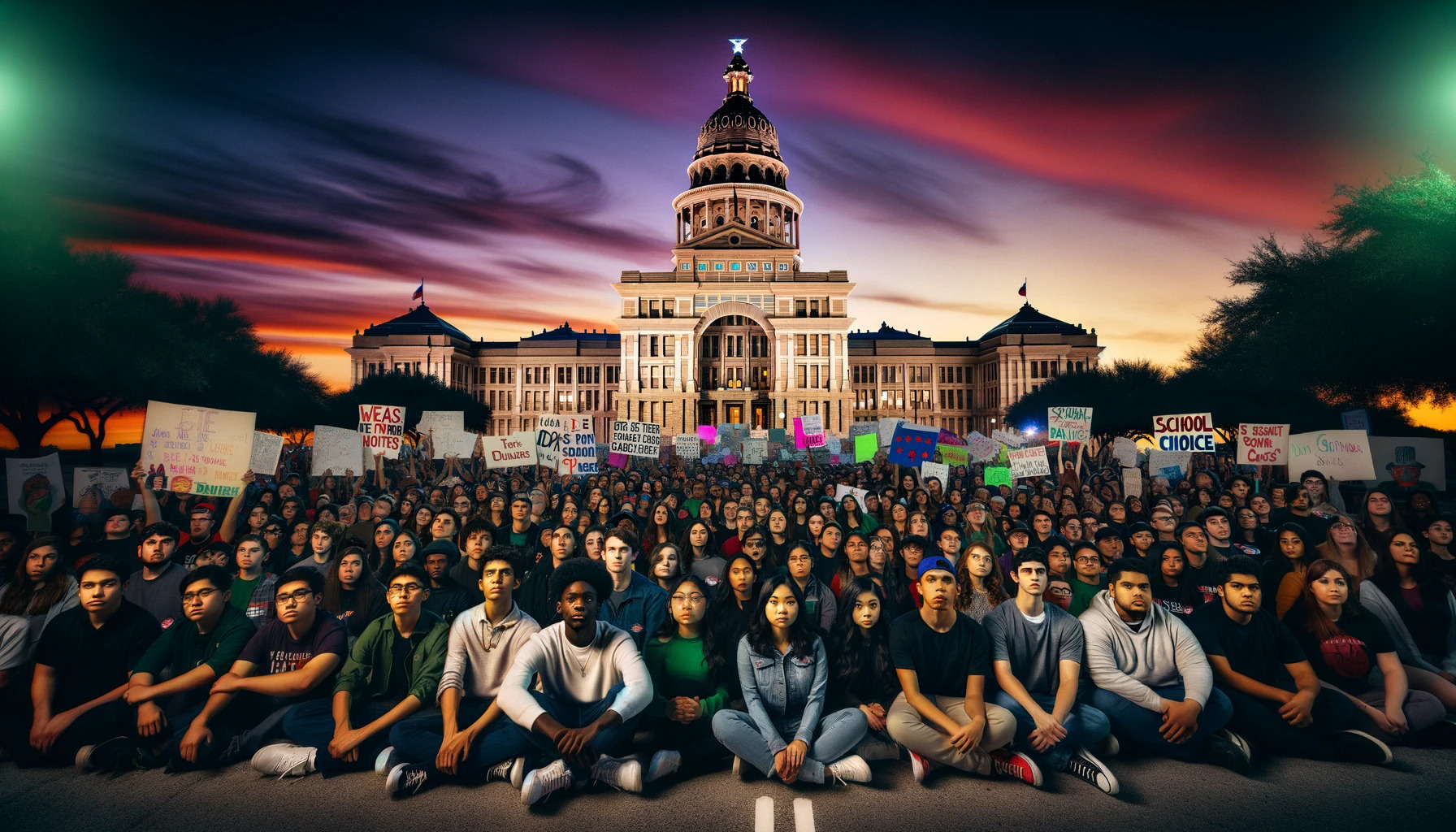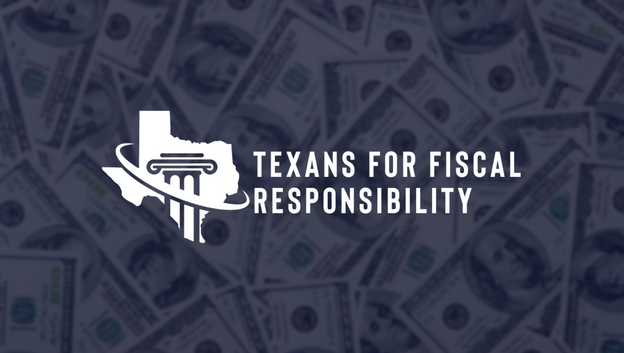
As the third special legislative session reaches its forced conclusion, it does so with not much in the way to show for it, especially regarding efforts on school choice.
In continuance of what seems to be a long-standing trend, efforts to implement a school choice program in Texas saw themselves stifled by a coalition of primarily Democrat and rural-Republican state House lawmakers. Despite a litany of concessions and attempts to further bolster government schools themselves to bring speculative lawmakers on board, a toxic mix of personality-led politics, spillover from disagreements on other legislative efforts, and an imminent primary election cycle have brought the Texas Legislature to a stalemate on many current issues.
Legislative Stalemate
Now, it appears that Texas Gov. Greg Abbott (R) is poised to call yet another special legislative session to begin imminently, presumably on school choice among other left undone issues, even though for all intents and purposes the political math surrounding such issues seems unchanged.
Abbott has previously threatened that if lawmakers could not reach an agreement on school choice he would consider both perpetually calling them back until they do and potentially weighing into primary elections themselves next Spring. Thus far, those threats do not seem to have worked.
As Texas gears up for its fourth special session, the spotlight turns to a new school choice bill that’s stirring up the legislative pot. The Lone Star State is at a crossroads, with the Texas House proposing a fresh take on education savings accounts to the tune of $10,500 per student, carving out a $500 million appropriation for this initiative.
Brief Recent Legislative History
The Texas Legislature has a sordid history when it comes to efforts to implement school choice.
In 2017, the Texas Senate passed Senate Bill 3 which ultimately sought to create both an Education Savings Account (ESA) program and a Tax Credit Scholarship (TCS) program. That effort was never considered by the House Public Education Committee and as such had its legislative prospects ultimately cut short.
Leading up to the legislative session in 2021, the COVID-19 pandemic reignited support behind school choice as many parents bore witness to the complications that came with a “one-size-fits-all” approach, highlighting the need for educational options. Legislative efforts failed however to get any traction by lawmakers.
In the 88th regular legislative session which took place earlier this year, Gov. Abbott made the topic of school choice, or empowering parents, an emergency item for the legislature to consider as a part of his annual State of the State Address. Though the Texas Senate once again passed legislation aimed at implementing an ESA program, the House Public Education Committee left the legislation pending, after being subjected to the threat of veto by Abbott himself as many changes were added by House leadership weakening its potential effects, and the session concluded having nothing to show for it with regard to Abbott’s priority.
Abbott added the consideration of school choice legislation, specifically that of an ESA to the third special session agenda which began on October 9th. Now many months removed from the regular legislative session, Abbott used a significant amount of time to travel the state on a promotional tour to garner support. Those efforts seem to have been in vain, at least thus far.
The Texas Senate passed a different version of a proposed ESA program only a few days into the legislative session. Though referred to the House Select Committee on Educational Opportunity and Enrichment, it never received a public hearing. The Senate’s legislation ultimately attempted to create an ESA program that would provide up to $8,000 for qualifying students, administered by the Texas Comptroller. The program would only initially be allocated about $500 million, and once those funds are exhausted institute a lottery-based acceptance program with different tiers of priority for specific classes of Texas students. Ultimately, the proposed legislation would have only potentially impacted 62,500 students of the nearly 6 million that could potentially qualify (about 1 percent).
Instead of considering the Senate’s legislation, the House responded by filing its own version one week later, which served to act as a sort of “catch-all” approach to school choice while also including things like salary increases for government school teachers and teacher training and residency incentives, among other provisions. Similarly, as written it would also only have the potential to service less than 1 percent of eligible students and implement a tiered system of specific classes of Texas students to receive priority, phased in over time. Ultimately the House’s version was never even referred to a committee.
With one week left in the special session, Abbott announced that a deal had been reached with House leadership on the issue, and in what seemed like last ditch effort to get the issue across the legislative finish line, he expanded the call of the special session to also include the consideration of increased teacher salaries for government schools, even though he had previously said he would only consider that issue once school choice legislation reached his desk. Seemingly, that deal was never realized, as the House convened and never acted upon any ESA legislation.
The only action in that timeframe was the House author of its version of ESA legislation distributing the “compromise” legislation to lawmakers for the stated sole purpose of allowing them to review it ahead of the next special legislative session, signaling the impasse.
Getting Lawmakers on the Record
This isn’t just about choice; it’s about competition and quality. Thus far, lawmakers, especially in the Texas House have been reluctant to take any public-facing vote on the subject, despite its popularity when polled. In this next special legislative session, it is important to finally get lawmakers on the record, whether the legislation implementing ESAs ultimately passes or not, especially ahead of the primary election cycle.
Texas voters deserve to know where their lawmakers stand on the issue instead of continuing the political impasse and diffusing accountability for such a thing.
Fourth Special Session on Immediate Horizon
It is widely expected for Gov. Abbott to call the legislature back in session immediately, almost assuredly to consider compromise school choice legislation, among the potential for a few other items related to border security. It is unclear what changes, if any, will exist when it comes to the political math.
Texans for Fiscal Responsibility (TFR) supports the idea of school choice. TFR will oppose the legislation, however, that does not provide school choice for all Texans or includes gimmicks like those of bribing government school districts with additional taxpayer money if a student chooses to attend a school somewhere else. TFR also opposed any legislation that would impose regulations on families that choose to homeschool their children and believes that if taxpayer money is to be used for such purposes as to provide for government schools it should do so in an efficient manner.
Similarly, TFR believes legislation that seeks to increase salaries for government school teachers should have strong protections against having that money be used for government school administration.
Texas already shells out an obscene amount of taxpayer money to government schools at both the state and local levels with many times terrible educational outcomes. Texas has a sordid history with ridiculous salaries for superintendents and other administrative officials at the hands of taxpayers, with many getting paid more than that of the governor of the state of Texas. Whatever the outcome of the upcoming special legislative session, efforts need to be made to provide much better stewardship of taxpayer money.
Concerned taxpayers can contact their lawmakers.
Texans for Fiscal Responsibility relies on the support of private donors across the Lone Star State in order to promote fiscal responsibility and pro-taxpayer government in Texas. Please consider supporting our efforts! Thank you!
Get The Fiscal Note, our free weekly roll-up on all the current events that could impact your wallet. Subscribe today!




